Latest News
Inspired Virtual Sports Are Filling The Live Sports Gap

 Reading Time: 2 minutes
Reading Time: 2 minutes
4.8 million viewers tuned in to watch the Virtual Grand National 2020 created by Inspired Entertainment, Inc. (Inspired”) (NASDAQ: INSE), the Company announced today. Potters Corner won the virtual race, but the real winner was NHS Charities Together, the UK National Health Service organization that will receive the event’s approximately £2.6 million in profits, donated by Inspired and all bookmakers operators as part of the fight against COVID-19.
Inspired’s Virtual Grand National was televised on ITV in the UK at 5:00 PM on Saturday, April 4, 2020, in place of this year’s Randox Health Grand National, which was canceled due to ongoing COVID-19 concerns. Featuring a stunning, fully accurate re-creation of the Aintree Racecourse, Inspired delivered an ultra-realistic 3D CGI representation of The Grand National, as officially licensed by the Jockey Club, allowing viewers to experience the world’s most exciting and iconic steeplechase using the latest, best-in-class graphics animation.
“Virtual Racing has predominantly been used as an added feature, providing a continual stream of betting content during quiet periods or leading up to some of the biggest sporting events. However, this year’s race has proven Virtual Sports are realistic enough to take center stage,” said Steve Rogers, Chief Commercial Officer of Virtual Sports for Inspired. “In addition to the extensive viewership, Virtual Grand National was trending second worldwide on Twitter on Saturday. This is a great example of how Virtual Sports can plug the gap and bring people together for some relief during these difficult times just as real sports do.”
The Virtual Grand National TV special featured the 40 horses and riders who were most likely to run in the Aintree spectacular. 18-1 shot Potters Corner, the Coral Welsh Grand National winner, clung on to beat Walk In The Mill, earning a place in the virtual history books. Tiger Roll, who won the 2018 Virtual Grand National and was the 2018 and 2019 Grand National champion, was the 5-1 favorite but finished fourth.
Major betting operators throughout the UK offered odds on the Virtual Grand National and contributed their profits from the race to NHS Charities Together as did Inspired.
Announcing the donation to NHS Charities Together, Betting and Gaming Council Chief Executive Michael Dugher said, “We are overwhelmed with the public support for the Virtual Grand National and for NHS Charities Together. Millions joined in the fun in honor of one of Britain’s greatest sporting events and helped raise a fantastic amount for our brave heroes in the NHS. It was heartwarming to see pictures on social media of so many people enjoying themselves.”
Inspired’s Virtual Sports uses life-like graphics to mimic the experience of real sports betting, thanks to the technology that has evolved over nearly two decades. Each event lasts around 90 seconds and games are designed to be easy to play. Inspired has the largest array of sports available 24/7, providing a consistent stream of sports betting content, even at times when live sports are not feasible. Virtual Sports provide new revenue streams for gaming providers that can be easily integrated into existing sportsbooks and websites. Trailers and demos of the latest Virtual Sports offerings are available at www.inseinc.com/virtuals/.
Source: Latest News on European Gaming Media Network
This is a Syndicated News piece. Photo credits or photo sources can be found on the source article: Inspired Virtual Sports Are Filling The Live Sports Gap

Latest News
ScatterKings adds sugar-coated spin to Austria with bespoke win2day partnership
ScatterKings has made its debut in Austria, partnering with operator win2day to bring its vibrant, hand-crafted portfolio to one of Europe’s most tightly regulated markets.
Headlining the partnership is Sweet win2day, a mouth-watering title designed exclusively for the operator. Other standout ScatterKings games, including Coins of Cleo, Vikings and Hogs Christmas and Big Bob, have also hit the screens of win2day’s customers, with further releases scheduled to follow.
Win2day is operated by Austrian Lotteries, which was founded more than 50 years ago and holds the only licence to offer online casino gaming in the country. The brand has gained a rich heritage as a trusted name in the market, priding itself on being one of the industry’s most responsible operators.
Through this deal, the new and fiercely passionate provider is redefining what modern slot content looks like for local players.
For ScatterKings, every game stands as a testament to its philosophy – proven mechanics fused with genuine artistic vision. A true labour of love from battle-tested developers, the brand-new studio, years in the making, is channelling its expertise into games crafted with soul.
With a leadership team of seasoned industry veterans spanning years of experience, ScatterKings is primed to accelerate its global growth and continue building games that deliver non-stop thrills.
Steven Cross, CCO at ScatterKings, said: “Our launch with win2day is such a proud moment for us and it’s a partnership built on trust in both our vision and craft.
“Entering such an exclusive market is a powerful endorsement of the quality and personality our content brings. We’re here to deliver premium entertainment to players under the most respected regulatory standards.”
Georg Wawer, Managing Director at win2day, said: “As Austria’s only licensed online gambling operator, it is our responsibility to offer players exclusively high-quality, secure and fully compliant gaming content. With ScatterKings, we welcome a highly innovative partner whose technological excellence and creative strength perfectly match our uncompromising standards.
“The studio’s games are optimised to meet the strictest player protection requirements, ensuring that every title on our platform delivers not only great entertainment but also the highest level of safety and responsibility. Their growing portfolio will be a valuable and exciting addition to win2day.”
The post ScatterKings adds sugar-coated spin to Austria with bespoke win2day partnership appeared first on Gaming and Gambling Industry Newsroom.
Latest News
Slotegrator’s 2025: the year in numbers
For Slotegrator, a leading software and business solution provider for online casino and sportsbook operators, 2025 marked a year of restructuring and modernization. The company outlines the key transformations of the past year and the strategy shaping its path through 2026.
Throughout 2025, Slotegrator focused on developing its technological and business solutions for gambling operators worldwide. And those efforts — as well as the team’s substantial growth — have paid off, driving the company to new heights of success.
One indicator of positive performance is an increase in demand. Slotegrator recorded strong growth in demand for its products in multiple regions:
- The Balkans (+168%)
- Africa (+132%)
- Australia and Oceania (+111%)
- Central and Eastern Europe (+76%)
In addition to expanding geographically, Slotegrator grew and developed in several key areas: the size of its client and partner network, the scale of its revenues and market share, and the nature of its leadership.
The company now has nearly 300 clients and over 650 projects worldwide, with 217 new projects launched in 2025 alone. That expansion has translated directly to a rise in revenues; the company’s estimated share of global online gambling GGR reached around 0.8%, driven by an 81% YoY increase in GGR and a 71% rise in Total Bets.
One of this year’s key changes was the appointment of Olga Ivanchik as chief operating officer. With an extensive industry and management background to draw on, she is leading the company’s focus on sustainable scaling, ESG integration, and further strengthening of the internal team.
The company also continued to expand the capabilities of its products. APIgrator, the game aggregator solution, surpassed the threshold of 40,000 online casino games, supported by new strategic partnerships with Octopus Global, Urgent Games, Peter&Sons, Winfinity, Enjoy Gaming, PHOENIX 7, Bellot, InOut Games, and BEON. Another major milestone of 2025 was obtaining a gambling license in Anjouan, enabling Slotegrator to extend its services to a wider range of operators worldwide.
The turnkey online casino platform from Slotegrator also underwent one of the most significant transformations in Slotegrator’s history. More than 1,000 product improvements were implemented in 2025 alone, laying a solid foundation for scalability and advanced analytics.
The platform upgrades covered business intelligence and reporting, limitless scalability, security and authentication, bonus module performance, affiliate integrations, resilient infrastructure, an improved Casino Builder solution, and a significantly reduced time-to-market.
“2025 was a year of major milestones for us. While the global iGaming market continues to evolve at high speed, we not only maintained our strong position but expanded it on multiple levels. This year clearly showed that our strategic direction is right and our foundation is strong,” says Olga Ivanchik, COO at Slotegrator.
Slotegrator enters 2026 with a well-calculated strategy and ambitious plans. The company will continue the large-scale expansion of its team, demonstrate its ESG strategy with a focus on responsible gaming practices and ethical marketing, participate actively in industry events around the globe, conduct new research and media projects, and pursue multiple high-impact product updates. And on top of that, there will be some major announcements at the beginning of the year.
Among the most anticipated developments are a new localization service, a revolutionary tool within the Moneygrator solution, extended AI-powered features, and further transformation of the turnkey platform into a fully integrated ecosystem of high-efficiency services.
For Slotegrator, 2025 was a year of modernization, scale, and trust — and 2026 is set to be the next leap forward.
ABOUT THE COMPANY
Since 2012, Slotegrator has been one of the iGaming industry’s leading software and business solution providers for online casino and sportsbook operators.
The company’s main focus is software development and support for online casino platforms, as well as the integration of game content and payment systems.
The company works with licensed game developers and offers a vast portfolio of casino content: slots, live casino games, poker, virtual sports, table games, lotteries, casual games, and data feeds for betting.
Slotegrator also provides consulting services in gambling license acquisition and business incorporation.
The post Slotegrator’s 2025: the year in numbers appeared first on Gaming and Gambling Industry Newsroom.
Latest News
Whale.io Launches $WHALE NFT Collection on Solana: New Pre-Market Phase Ahead of TGE
Whale.io has officially launched the $WHALE NFT collection on Solana, introducing the next phase of the platform’s native token rollout and bringing the community one step closer to the upcoming Token Generation Event (TGE).
The $WHALE NFTs – presented as fully tradable digital cards – represent a new value layer within the Whale ecosystem. Each card holds a fixed amount of $WHALE tokens locked on-chain and backed 1:1, making them redeemable at any time for the underlying tokens. Minting is now live exclusively at mintwhale.io, where users can acquire these asset-backed cards and begin trading immediately on secondary marketplaces such as Magic Eden.
This format transforms $WHALE into a hybrid asset: a collectible card that behaves like a traditional NFT while carrying real, instantly verifiable token value. Cards can be freely transferred, sold, or held, with the assurance that the locked $WHALE can always be unlocked and returned to the Whale.io platform when needed.
Key Benefits of the $WHALE NFT Model
- Liquidation and stronger community – $WHALE NFTs enable holders to convert tokens into tradable crypto assets, supporting liquidity and ongoing ecosystem activity.
- Easier entry for new participants – Anyone can now join the Whale ecosystem by purchasing cards on Magic Eden, bypassing the traditional play-to-earn grind.
- Seamless top-ups – Players with low $WHALE balance can buy additional cards on secondary markets and redeem them instantly for playable tokens to continue enjoying games, battle passes, and rewards.
Because every card is transparently backed by real $WHALE, value remains anchored and fully verifiable on-chain at all times.
Utility Already Live
$WHALE continues to serve as the native currency across Whale Originals titles, including Crock Dentist and Blackjack. Holders use it for gameplay, Battlepass purchases, staking rewards, and exclusive in-platform features – a utility that is available today and will expand significantly after TGE.
Next Steps on the Roadmap
Upcoming features include a Staking mechanism (locking liquid $WHALE into cards) and a dedicated Token Swapping interface for one-click redemption. Whale.io has also reaffirmed its commitment to regular market buybacks followed by permanent token burns to support long-term token health.
Participation Now Open
The $WHALE NFT collection is available for minting exclusively at mintwhale.io. Detailed card tiers, pricing, and redemption instructions are displayed on the site. All on-chain activity remains fully transparent through Whale.io’s established Treasury wallets.
Community members are invited to follow @Whalegames_en on X for real-time mint updates, secondary market insights, and announcements on future roadmap milestones.
About Whale.io
Whale.io is an online casino and sportsbook platform, recognized for its proprietary Whale Originals games and innovative reward systems. With $WHALE at its core, the platform combines provably fair gaming with community-owned economics and transparent tokenomics.
For complete details on the $WHALE NFT collection, users can visit mintwhale.io or whale.io.
Information on the future direction of Whale.io Casino and the Whale Token is available here:
Website: https://mintwhale.io/
Socials: https://linktr.ee/whalesocials_tg
Contact
Whale Spokesperson
Whale.io
The post Whale.io Launches $WHALE NFT Collection on Solana: New Pre-Market Phase Ahead of TGE appeared first on Gaming and Gambling Industry Newsroom.
-
Latest News3 months ago
Announcement: 25th September 2025
-

 Latest News6 days ago
Latest News6 days agoSCCG Announces Strategic Partnership with Yellow Elephant Studios to Expand Multi-Channel Gaming Content Worldwide
-
Latest News1 month ago
JioBLAST Launches All Stars vs India powered by Campa Energy: A New Era of Creator-Driven Esports Entertainment
-
Latest News3 months ago
The Countdown is On: Less Than 3 Months to Go Until The Games of The Future 2025 Kicks Off in Abu Dhabi
-
eSports1 month ago
CS:GO Betting Gains Momentum in the iGaming Sector
-
Latest News2 weeks ago
THE 2025 PUBG MOBILE GLOBAL CHAMPIONSHIP GROUP STAGE WRAPS UP WITH LAST CHANCE IN SIGHT
-
Latest News3 months ago
Leading The Charge! Euronics Group Joins LEC As Official Electronics Retail Partner
-
Latest News3 months ago
Evolution launches Sneaky Slots — a Bold New Slot Studio




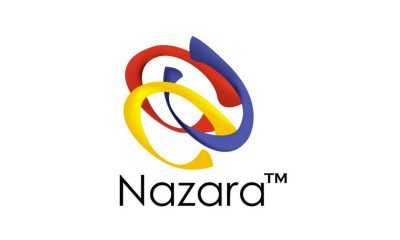











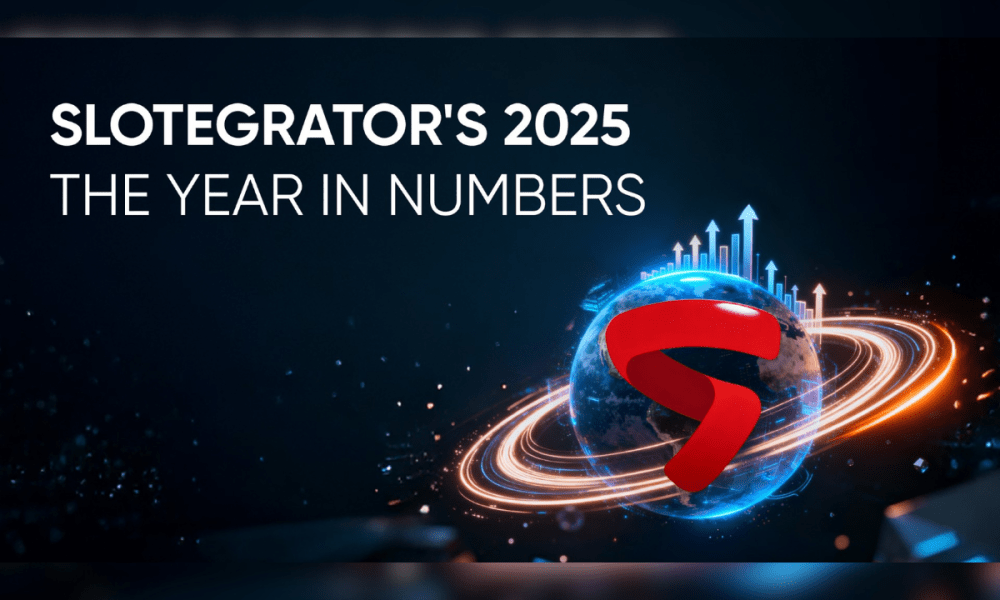

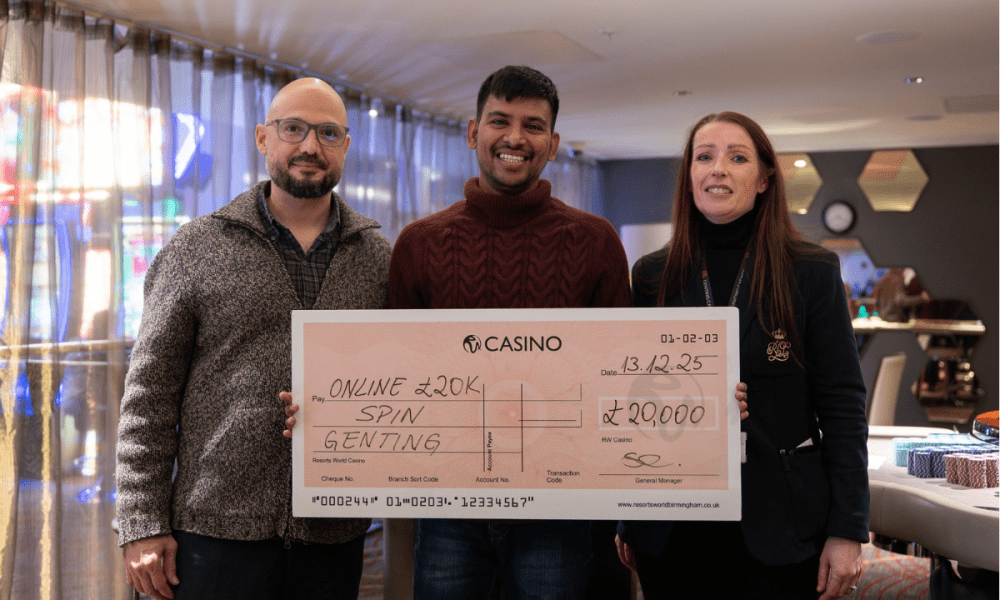



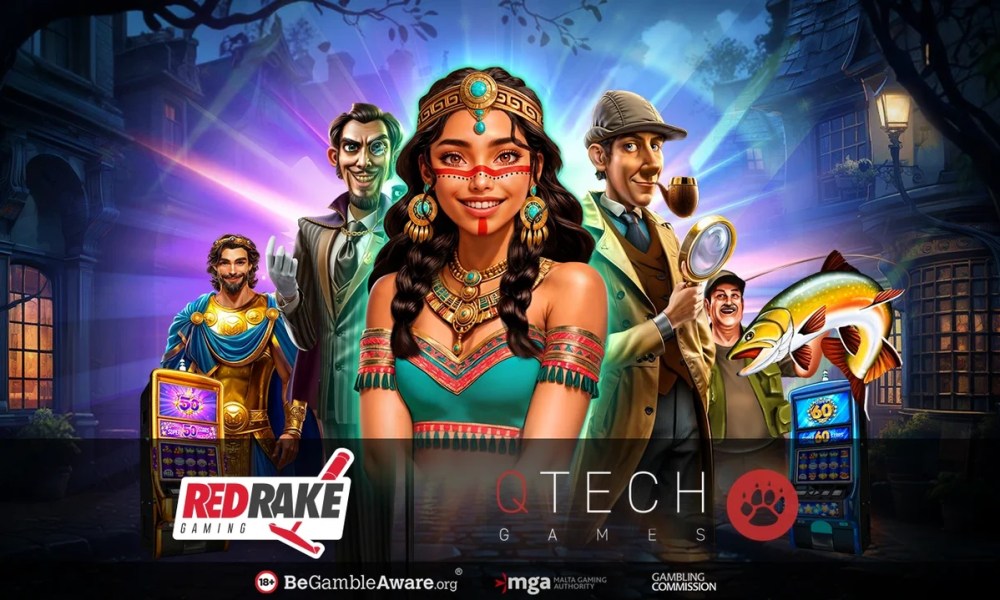
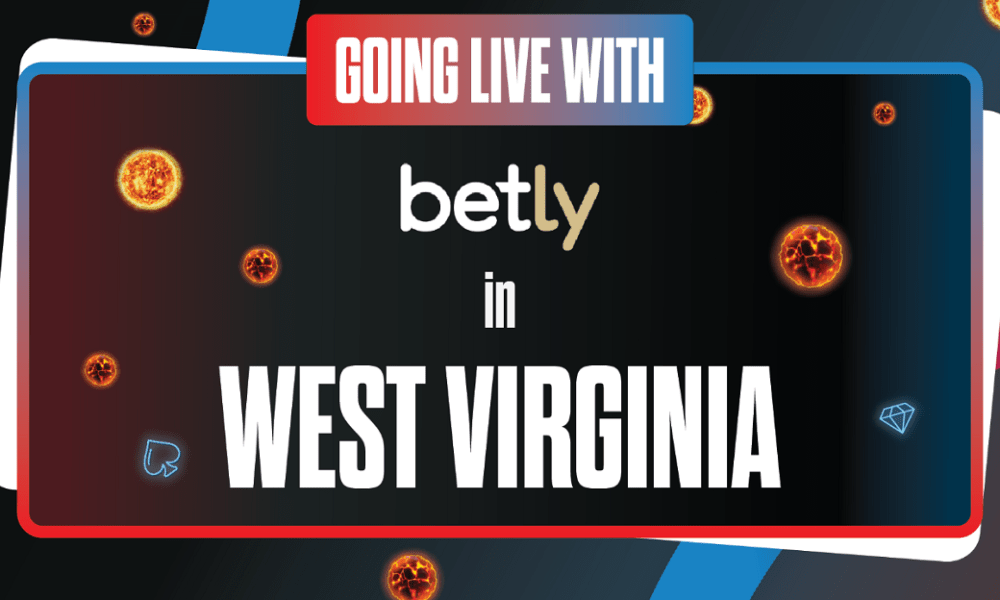
You must be logged in to post a comment Login